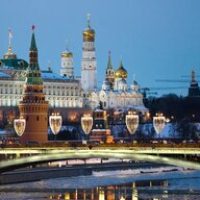India is home to some of the best medical schools in the world, but the competition to get into these schools is fierce. For many Indian students, the cost of medical education in India is also prohibitive. As a result, many Indian students are looking for other countries to study MBBS.
Pursuing a Medical degree (MBBS) abroad has become an attractive option for many Indian students due to various reasons such as the availability of quality education, lower fees, and ease of admission. Nepal, being a neighboring country, has emerged as a popular destination for Indian students seeking to pursue MBBS. With an excellent medical education system and recognition from the Medical Council of India (MCI), Nepal has become a preferred choice for aspiring doctors from India. This study aims to provide a comprehensive overview of the top medical colleges in Nepal, along with details on admission procedures, curriculum, facilities, and other essential aspects.
Nepal is a great option for Indian students who are looking for high-quality medical education at an affordable price. Nepal has a long history of producing high-quality doctors, and its medical schools are accredited by the Medical Council of India (MCI). The cost of tuition for MBBS in Nepal is much lower than the cost of tuition in India, and the cost of living in Nepal is also much lower.
In addition to the high quality of education and the low cost of tuition, Nepal also offers a number of other advantages for Indian students. Nepal is a safe and friendly country, and the Nepalese people are known for their hospitality. Indian students will be able to easily adjust to life in Nepal, and they will be able to enjoy the beautiful scenery and the rich culture of the country.
Claim Your White Coat Now. Fill up the form to learn more about your options for studying MBBS in Nepal.
Why MBBS in Nepal should be first option for You
Nepal should be the first option for Indian students to study MBBS for several compelling reasons:
- Quality Education: Nepalese medical colleges maintain high standards of education and have a reputation for producing skilled and competent medical professionals. Many top medical colleges in Nepal are recognized by international medical bodies and are listed in the World Directory of Medical Schools.
- Affordability: The cost of studying MBBS in Nepal is significantly lower compared to private medical colleges in India. This makes it an attractive option for Indian students who wish to pursue a medical degree without the burden of exorbitant tuition fees.
- Proximity to India: Nepal shares a close geographical and cultural proximity to India, making it an ideal choice for Indian students. The ease of travel and the familiarity with the culture and language make the adjustment to living and studying in Nepal relatively smooth for Indian students.
- MCI Recognition: The Medical Council of India (MCI) recognizes several medical colleges in Nepal, enabling Indian students to pursue their MBBS in Nepal and return to India for further studies or practice. As long as the college is MCI recognized, Indian students can appear for the Foreign Medical Graduate Examination (FMGE) conducted by the MCI to practice medicine in India.
- English-Medium Instruction: Most medical colleges in Nepal offer MBBS programs in English, which is beneficial for Indian students who are well-versed in the language. This eliminates the need to learn a new language for studying medical courses.
- Experienced Faculty: Nepalese medical colleges often have experienced and qualified faculty members, including professors and doctors, who provide valuable insights and guidance to the students.
- Global Exposure: Studying in Nepal provides Indian students with an opportunity to experience a different healthcare system and diverse medical cases. This exposure broadens their understanding of medical practices and enhances their adaptability as future healthcare professionals.
- Cultural Exchange: Studying in Nepal allows Indian students to immerse themselves in a rich cultural experience, interacting with students from diverse backgrounds. This cross-cultural exposure fosters a global perspective and enriches personal growth.
- Availability of Facilities: Many medical colleges in Nepal have well-equipped laboratories, hospitals, and research centers that provide hands-on training and exposure to various medical procedures.
- Supportive Environment: Nepalese society is known for its warmth and hospitality, which creates a supportive and nurturing environment for international students, including those from India.

In addition to the reasons mentioned above, here are some other factors that Indian students should consider when choosing MBBS in Nepal:
- Accreditation: All medical schools in Nepal are accredited by the MCI, which means that they meet the same standards as medical schools in India. This is important for Indian students who want to be sure that their degree will be recognized by the MCI.
- Curriculum: The curriculum for MBBS in Nepal is similar to the curriculum for MBBS in India. This means that Indian students will be able to seamlessly transfer their credits if they decide to continue their medical education in India.
- Placements: Medical graduates from Nepal have good placement opportunities in India. Many Indian hospitals and healthcare organizations recruit medical graduates from Nepal.
Claim Your White Coat Now. Fill up the form to learn more about your options for studying MBBS in Nepal.
Cost of Living in Nepal
For Indian students studying in Nepal, the cost of living is generally affordable and lower compared to many other countries. The expenses can vary depending on the city or town they choose to reside in and their individual lifestyle.
On average, the monthly living expenses for Indian students in Nepal, including accommodation, food, transportation, and other miscellaneous costs, could range from INR 10,000 to INR 20,000. Rent for shared accommodations or hostels is relatively economical, especially in smaller towns.
Indian students can also find reasonably priced local food in Nepal, which further helps in managing living costs. Public transportation is affordable, making it convenient for students to move around the city or between towns.
Overall, studying in Nepal provides Indian students with a cost-effective option to pursue their education while experiencing a different culture and environment. The country’s affordability, coupled with its recognized medical education, makes it an attractive choice for many aspiring Indian doctors.
In conclusion, Nepal offers Indian students an excellent opportunity to pursue a quality MBBS education in a cost-effective manner with cultural familiarity and ease of access. The country’s recognized medical colleges, English-medium instruction, experienced faculty, and MCI recognition make Nepal an attractive and viable option for Indian students aspiring to become proficient medical professionals.
Other Top Destinations for MBBS Abroad
The fees for MBBS study in Nepal vary depending on the medical school. However, the average fees for MBBS in Nepal are around INR 50 lakhs for the entire course. This includes tuition fees, hostel fees, mess fees, and other miscellaneous expenses.
There are a few medical schools in Nepal that offer MBBS at a lower cost. For example, the Institute of Medicine (IOM) in Kathmandu offers MBBS at a cost of around INR 40 lakhs for the entire course. However, these medical schools may not be as well-equipped or have as good faculty as the more expensive medical schools.
It is important to factor in the cost of living in Nepal when calculating the total cost of MBBS study. The cost of living in Nepal is much lower than the cost of living in India. This means that Indian students will be able to save money on their living expenses while they are studying in Nepal.
Overall, the fees for MBBS study in Nepal are much lower than the fees for MBBS study in India. This makes Nepal a more affordable option for Indian students who are looking for a high-quality medical education.

Top Medical Colleges of Nepal and admission process
1. Tribhuvan University (Institute of Medicine):
Tribhuvan University (TU) is one of Nepal’s oldest and most prestigious universities, offering medical education through its Institute of Medicine (IOM). The IOM is renowned for producing competent medical professionals. It is located in Kathmandu, the capital city of Nepal. TU’s MBBS program follows a comprehensive curriculum that covers all aspects of medical education. The faculty comprises experienced professors and doctors who are experts in their respective fields.
Admission Procedure: Indian students seeking admission to TU’s MBBS program must appear for the Common Entrance Examination (IOM-CEE) conducted by the Institute of Medicine. The entrance exam typically takes place in Kathmandu.
2. Kathmandu University School of Medical Sciences (KUSMS):
Kathmandu University School of Medical Sciences (KUSMS) is a well-known medical institution situated in Dhulikhel, a scenic town close to Kathmandu. The college boasts state-of-the-art infrastructure and modern teaching facilities, making it a preferred choice for Indian students. KUSMS offers a rigorous MBBS curriculum that ensures holistic medical education.
Admission Procedure: Indian students seeking admission to KUSMS must clear the Kathmandu University Medical Entrance Examination (KUMET) conducted by the university.
3. B.P. Koirala Institute of Health Sciences (BPKIHS):
Located in Dharan, B.P. Koirala Institute of Health Sciences (BPKIHS) is an autonomous medical institution of national importance. Established in memory of the late Prime Minister B.P. Koirala, the institute offers comprehensive medical programs, including MBBS, to students from Nepal and abroad. BPKIHS is well-regarded for its medical research and community-based health programs.
Admission Procedure: Indian students seeking admission to BPKIHS must appear for the entrance exam conducted by the institute.
4. Nepal Medical College:
Nepal Medical College (NMC) is a private medical institution situated in Jorpati, Kathmandu. The college is affiliated with Kathmandu University and is known for its modern facilities and experienced faculty. NMC offers a diverse range of medical programs, including MBBS.
Admission Procedure: Indian students seeking admission to Nepal Medical College must clear the Kathmandu University Medical Entrance Examination (KUMET).
5. Manipal College of Medical Sciences (MCOMS):
Affiliated with Manipal Academy of Higher Education, India, Manipal College of Medical Sciences (MCOMS) is located in Pokhara, one of Nepal’s most picturesque cities. The college offers world-class medical education and follows a curriculum that combines theoretical knowledge with practical experience.
Admission Procedure: Indian students seeking admission to MCOMS must clear the Manipal College of Medical Sciences Entrance Examination (MCOMS EE).
Claim Your White Coat Now. Fill up the form to learn more about your options for studying MBBS in Nepal.
6. Patan Academy of Health Sciences (PAHS):
Patan Academy of Health Sciences (PAHS) is an autonomous medical institution located in Lalitpur, near Kathmandu. Established with the assistance of the Government of Nepal, PAHS is committed to providing quality medical education and addressing the healthcare needs of the community.
Admission Procedure: Indian students seeking admission to PAHS must appear for the entrance exam conducted by the academy.
7. Universal College of Medical Sciences (UCMS):
Universal College of Medical Sciences (UCMS) is a private medical college situated in Bhairahawa, close to the Indian border. The college is affiliated with Tribhuvan University and is known for its modern infrastructure and excellent faculty.
Admission Procedure: Indian students seeking admission to UCMS must appear for the Common Entrance Examination (IOM-CEE) conducted by the Institute of Medicine, Tribhuvan University.
8. Nobel Medical College:
Nobel Medical College is a private medical institution located in Biratnagar, a city in eastern Nepal. The college offers an extensive range of medical programs, including MBBS, and is known for its quality education and experienced faculty.
Admission Procedure: Indian students seeking admission to Nobel Medical College must appear for the entrance exam conducted by the college.
9. Gandaki Medical College:
Gandaki Medical College is situated in Pokhara, the second-largest city in Nepal. The college offers a diverse range of medical programs, including MBBS, and is known for its student-centered approach to education.
Admission Procedure: Indian students seeking admission to Gandaki Medical College must appear for the entrance exam conducted by the college.
10. National Medical College:
National Medical College is located in Birgunj, a city close to the Indo-Nepal border. The college offers a comprehensive MBBS program and is known for its emphasis on practical training and research.
Admission Procedure: Indian students seeking admission to National Medical College must appear for the entrance exam conducted by the college.

Potential recruiters for MBBS graduates
- Government Hospitals: Various government hospitals and healthcare facilities across the country hire MBBS graduates for medical officer positions.
- Private Hospitals and Clinics: Leading private hospitals, nursing homes, and medical clinics frequently recruit MBBS doctors to provide medical services.
- Pharmaceutical Companies: Some pharmaceutical companies require MBBS doctors for medical advisory roles, clinical research, and medical writing.
- Medical Colleges and Universities: MBBS graduates may find teaching opportunities in medical colleges and universities.
- Research Institutions: Research institutions and medical research organizations may hire MBBS doctors for research-related positions.
- Non-Governmental Organizations (NGOs): NGOs working in the healthcare sector may hire MBBS doctors to work on various health projects and initiatives.
- Armed Forces: The Indian Armed Forces also require medical officers with an MBBS degree.
- Corporate Healthcare: Some large corporations have in-house medical facilities and may recruit MBBS doctors to take care of their employees’ health.
- Telemedicine Platforms: With the growth of telemedicine, various online healthcare platforms may have opportunities for MBBS doctors to provide virtual consultations.
- International Opportunities: Some MBBS graduates may explore job opportunities in other countries or work with international organizations.
Claim Your White Coat Now. Fill up the form to learn more about your options for studying MBBS in Nepal.
Nepal offers a plethora of options for Indian students aspiring to pursue MBBS in Nepal. The top medical colleges in Nepal provide a conducive environment for learning, with experienced faculty and state-of-the-art facilities. The country’s proximity to India, affordable fees, and recognition from the Medical Council of India (MCI) make Nepal an attractive destination for Indian students seeking quality medical education. However, it is essential for students to thoroughly research and understand the admission procedures and curriculum of the respective colleges before making a decision. By making an informed choice, Indian students can fulfill their dreams of becoming skilled medical professionals while studying MBBS in Nepal.
Some FAQ about MBBS in Nepal for Indian Students
1. What is the eligibility criteria for Indian students to study MBBS in Nepal?
To study MBBS in Nepal, Indian students typically need to have completed their 10+2 education with Physics, Chemistry, and Biology as core subjects. They should also pass the NEET (National Eligibility cum Entrance Test) exam to be eligible for admission.
2. Is NEET required for Indian students to study MBBS in Nepal?
Yes, NEET is mandatory for Indian students who wish to pursue MBBS in Nepal. It is a prerequisite for admission to medical colleges in Nepal.
3. Are there any entrance exams for MBBS in Nepal?
Some medical colleges in Nepal may have their own entrance exams in addition to the NEET requirement. It is advisable to check with the specific colleges for their admission procedures.
4. What is the duration of MBBS in Nepal?
The MBBS program in Nepal usually has a duration of 5.5 years, including 1 year of internship. This may vary slightly depending on the medical college.
5. Is the medium of instruction English in Nepalese medical colleges?
Yes, most medical colleges in Nepal offer MBBS programs in English, making it accessible to international students, including Indians.
6. How much does it cost to study MBBS in Nepal for Indian students?
The cost of studying MBBS in Nepal varies depending on the college. On average, it can range from INR 40-50 lakhs for the entire program, making it an affordable option compared to private medical colleges in India.
7. Are Indian students eligible for scholarships in Nepalese medical colleges?
Some Nepalese medical colleges may offer scholarships or fee discounts to deserving international students. It is advisable to check with individual colleges for scholarship opportunities.
8. Is the MBBS degree from Nepal recognized in India and globally?
Yes, MBBS degrees obtained from medical colleges in Nepal are recognized by the Medical Council of India (MCI) and are accepted worldwide.
9. What is the quality of medical education in Nepal?
Nepalese medical colleges maintain a good standard of medical education and have experienced faculty. They follow a curriculum similar to that of Indian medical colleges.
10. Are there any language proficiency tests required for Indian students in Nepal?
Generally, there are no additional language proficiency tests required, as the medium of instruction is English. However, students may need to show proficiency in English during the admission process.
Before making a decision, it’s essential for Indian students to research specific colleges, their admission procedures, and any recent changes in regulations to ensure a smooth application process for studying MBBS in Nepal.





